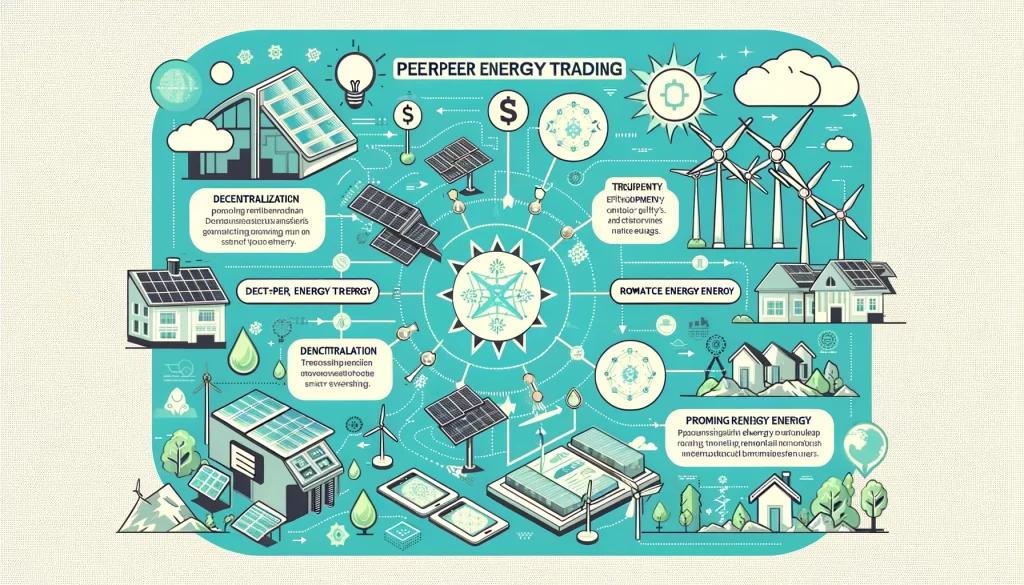The transition towards renewable energy sources is a critical step in addressing global climate change and promoting sustainable development. However, traditional energy markets, dominated by centralized utilities and large-scale power generation, often present barriers to the integration and distribution of renewable energy. Blockchain technology, with its decentralized and transparent nature, offers a groundbreaking solution to these challenges, enabling a more inclusive and efficient energy market. This article explores blockchain’s transformative role in decentralizing energy markets and promoting the use of renewable energy.

Blockchain: A Catalyst for Change in Energy Markets
Blockchain technology, best known for underpinning cryptocurrencies like Bitcoin, is a decentralized ledger that records transactions across multiple computers. Its application in energy markets lies in its ability to facilitate secure, transparent, and direct transactions between energy producers and consumers, bypassing traditional intermediaries.
Democratizing Energy Production and Distribution
Blockchain enables the creation of decentralized energy grids, where households and businesses can produce, store, and trade renewable energy directly with one another. This peer-to-peer energy trading model empowers small-scale renewable energy producers, allowing them to monetize excess energy and contributing to the diversification of the energy supply.
Enhancing Transparency and Trust
The transparency inherent in blockchain technology ensures that all transactions are visible and verifiable by all parties involved. This transparency fosters trust among participants in the decentralized energy market, encouraging more individuals and businesses to invest in renewable energy production and trading.
Increasing Efficiency and Reducing Costs
By automating transactions with smart contracts—self-executing contracts with the terms of the agreement directly written into code—blockchain reduces the need for intermediaries, lowering transaction costs and increasing the efficiency of energy trading. This efficiency makes renewable energy more competitive against fossil fuels, accelerating its adoption.
Real-World Applications and Success Stories
Several initiatives around the world are demonstrating the potential of blockchain in decentralizing energy markets and promoting renewable energy.
- Brooklyn Microgrid: In New York, the Brooklyn Microgrid project enables local residents to buy and sell solar energy generated within their community using blockchain, showcasing a successful model of a localized, decentralized energy market.
- Power Ledger: An Australian technology company, Power Ledger, has developed a blockchain-based platform that allows consumers and producers to trade renewable energy directly, facilitating the growth of decentralized energy markets on a global scale.
Navigating Challenges
Despite its potential, the adoption of blockchain in energy markets faces challenges. Regulatory hurdles, the need for technological infrastructure, and concerns about blockchain’s energy consumption must be addressed to realize its full potential. Innovations in blockchain technology, such as the development of more energy-efficient consensus mechanisms, are critical in overcoming these challenges.
The Future of Energy Markets
The role of blockchain in decentralizing energy markets and promoting renewable energy is becoming increasingly evident. As technology advances and regulatory frameworks evolve, blockchain has the potential to significantly alter how energy is produced, distributed, and consumed, making renewable energy more accessible and affordable.
The transition to decentralized energy markets not only supports the shift towards renewable energy but also empowers consumers and small producers, leading to a more sustainable and resilient energy future. By harnessing the power of blockchain, we can move closer to achieving global sustainability goals and combating climate change.




